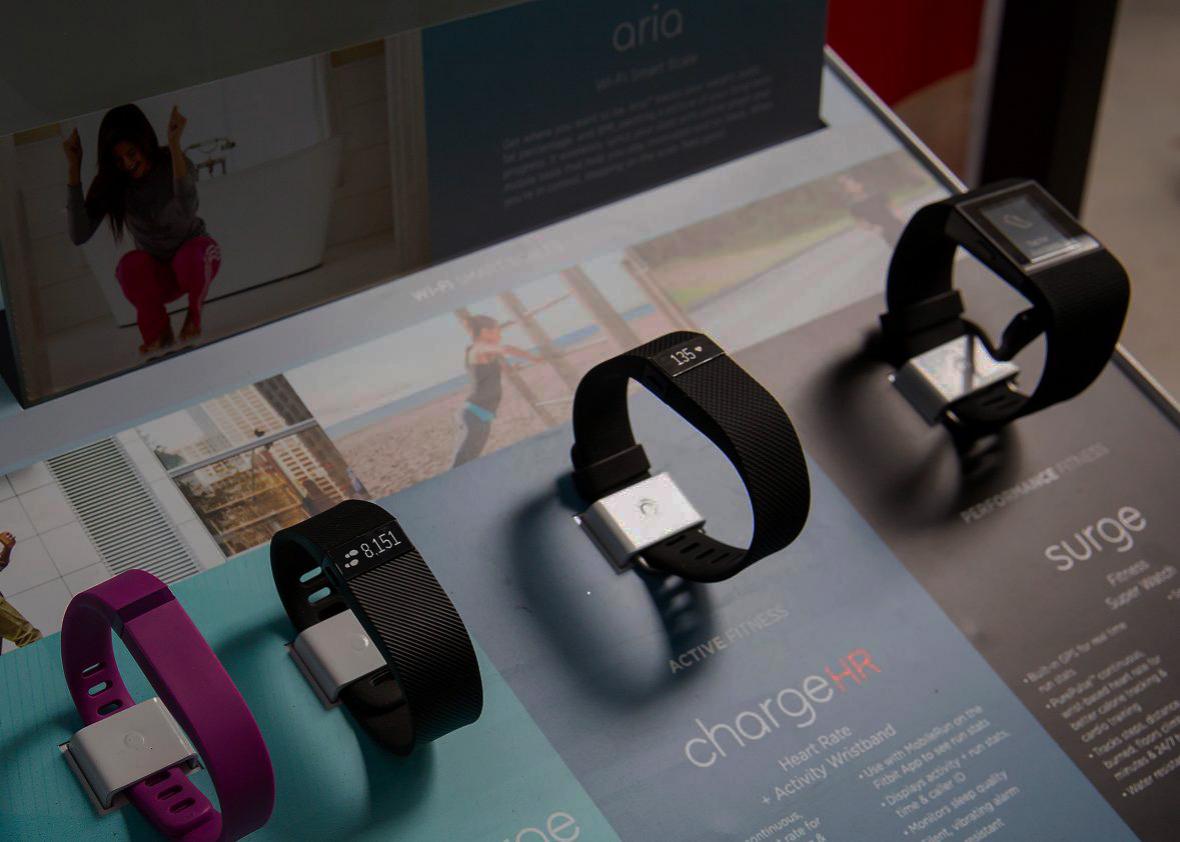It’s been a tumultuous week for fitness wearable maker Fitbit. At the Consumer Electronics Show in Las Vegas on Tuesday, the company announced a smartwatch-type fitness tracker called the Fitbit Blaze. It will sell for $200 as a low-price, fitness-oriented alternative to full-fledged smartwatches. But Fitbit’s stock fell 18 percent that day with investors worrying that the strategy won’t succeed against companies like Apple. What could make that day even worse? Cue the lawsuit.
Fitbit customers from California, Colorado, and Wisconsin filed a class-action lawsuit on Tuesday, alleging that two 2015 Fitbit models—the Charge HR and the Surge—don’t offer accurate heart rate readings. As the Verge, which first reported the news, points out, Fitbit also dealt with a class-action suit in 2014. In that case, customers were getting rashes from the Fitbit Force.
In the current suit, Fitbit users assert that the LED “PurePulse” heart rate monitor in the Charge HR and Surge doesn’t offer accurate readings. “Plaintiffs and many consumers like them have experienced—and testing confirms—that the PurePulse Trackers consistently mis-record heart rates by a very significant margin, particularly during exercise.” Good thing no one uses their Fitbits while exercising. One plaintiff claims that her heartbeat was actually double what her Fitbit said during a personal training session.
More than step counters or food trackers, heart-rate monitors provide potentially vital health information. Fitbits aren’t a substitute for medical-grade devices, of course, but skewed heart rate data from Fitbits could still lead to confusion, unnecessary stress, or a false sense of security for consumers.
Fitbit told Fortune and others in a statement that:
We do not believe this case has merit. Fitbit stands behind our heart rate technology and strongly disagrees with the statements made in the complaint and plans to vigorously defend the lawsuit. … Our team has performed and continues to perform internal studies to validate our products’ performance. … It’s also important to note that Fitbit trackers are designed to provide meaningful data to our users to help them reach their health and fitness goals, and are not intended to be scientific or medical devices.
But whether or not the suit turns out to have merit, this has certainly been a bad week for Fitbit.
